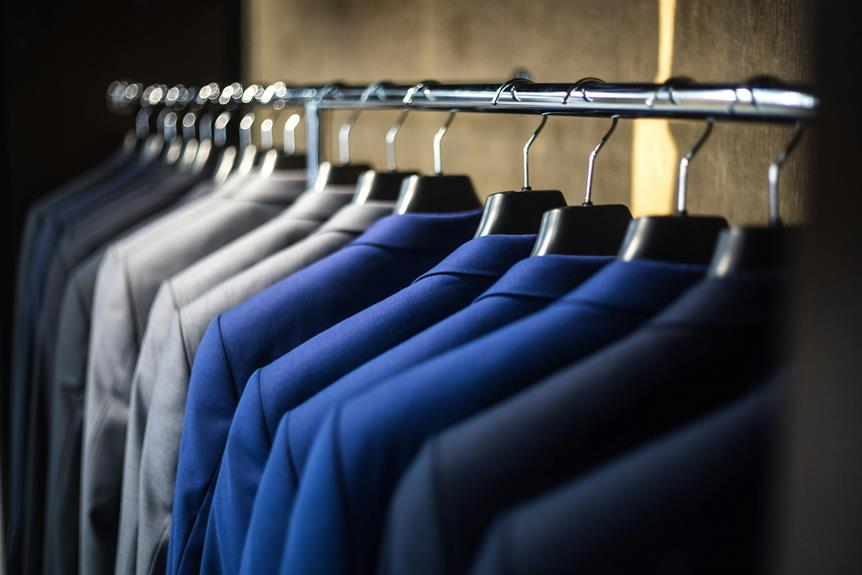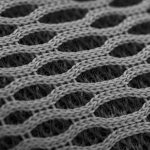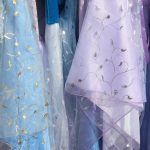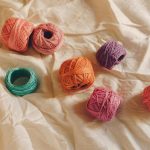When you're dressing your baby, comfort is key, and using fabric softener can significantly enhance that experience. It softens the fabric, reducing scratchiness that might irritate your little one's sensitive skin. You'll also find that it helps minimize static cling, making outfit changes smoother and less frustrating. But the benefits don't stop there; fabric softener can prolong the life of baby clothes, keeping them looking fresh and new. If you're curious about how these advantages can transform your laundry routine and contribute to your baby's comfort, you might want to explore further.
Table of Contents
Key Takeaways
- Fabric softener enhances comfort by softening baby clothes, reducing scratchiness and irritation for sensitive skin.
- It minimizes static cling, making dressing easier and promoting comfortable playtime for babies.
- The protective coating from fabric softener increases the durability of baby clothes, preventing wear and tear.
- Fabric softener locks in pleasant fragrances, neutralizing odors and ensuring fresh-smelling outfits for babies.
Softness for Sensitive Skin
Fabric softener adds a gentle touch to baby clothes, ensuring they feel soft against your little one's sensitive skin. When you wash those tiny outfits, you want to create a comfortable experience for your baby. Using fabric softener achieves that, making the fabrics smoother and more pleasant to wear. This is especially important since babies have delicate skin that can easily become irritated by rough materials.
You'll notice that freshly washed clothes feel a bit scratchy or stiff. Adding fabric softener helps reduce this roughness, allowing the fibers to relax and become more pliable. This means fewer chances of irritation or discomfort for your baby, and that's something every parent wants.
Moreover, fabric softeners often come with pleasant scents, leaving your baby's clothes smelling fresh and inviting. This can be a delightful experience during cuddle time, making those moments even more special.
Just remember to choose a fabric softener that's free from harsh chemicals and dyes, as these can counteract the benefits. By selecting the right product, you can ensure your little one's clothes aren't only soft but also safe for their sensitive skin.
Reducing Static Cling
Using fabric softener significantly reduces static cling in baby clothes, making them easier to manage during dressing and changing. Static cling can be frustrating, especially when you're trying to get your little one dressed quickly. With fabric softener, you can enjoy smoother, more manageable clothes that stay in place.
Here are three key benefits of reducing static cling with fabric softener:
- Easier Dressing: Clothes that don't cling to your baby's skin allow for smoother dressing. You won't have to wrestle with fabric that sticks to itself or your baby.
- Comfortable Playtime: When your baby's clothes are free of static, they can move around more freely. This promotes comfort and lets them enjoy their playtime without distractions.
- Less Fussing: A static-free outfit means fewer wardrobe malfunctions. Your baby can enjoy their day without you constantly adjusting their clothing.
Enhancing Durability of Fabrics
Adding fabric softener to your baby's laundry helps enhance the durability of their clothes, making them last longer through countless washes and wear. When you use fabric softener, it coats the fibers of the fabric, creating a protective barrier that reduces friction. This means less wear and tear during the washing and drying process, which is especially important for baby clothes that go through frequent laundering.
Additionally, fabric softeners can help maintain the integrity of the fibers. By preventing them from becoming stiff or rough, the clothes retain their original texture and comfort. You want your baby's clothes to feel soft against their sensitive skin, and fabric softeners play a crucial role in achieving that.
Moreover, choosing a fabric softener designed for baby clothes ensures that it's gentle and safe. This way, you can rest easy knowing you're providing a cozy, durable wardrobe for your little one.
Freshness and Fragrance
Maintaining the durability of your baby's clothes is important, but freshness and fragrance also play a significant role in keeping them smelling delightful after each wash. You want your little one to wear clothes that not only feel soft but also smell fresh. That's where fabric softener comes in handy.
Here are three reasons why you'll love using fabric softener for your baby's clothes:
- Long-lasting Freshness: Fabric softeners coat the fibers of the fabric, helping to lock in that fresh scent. This means your baby's outfits will smell great for days, even after multiple wears.
- Gentle Fragrance: Many fabric softeners are designed specifically for baby clothes, featuring mild and hypoallergenic scents. These fragrances are perfect for your baby's sensitive skin, ensuring they stay comfortable while smelling lovely.
- Odor Neutralization: Fabric softeners help neutralize odors that can cling to clothes, keeping your baby's wardrobe smelling clean and inviting. Whether it's milk spills or diaper changes, you won't have to worry about lingering smells.
Incorporating fabric softener into your laundry routine helps create a delightful experience for both you and your baby!
Ease of Ironing and Care
Fabric softener makes ironing baby clothes a breeze, reducing wrinkles and allowing you to spend less time on laundry and more time with your little one. When you use fabric softener, it not only softens the fibers but also helps to reduce static cling, making it easier to glide the iron across the fabric. This means you can achieve that crisp, polished look with minimal effort.
Here's a quick reference of the benefits of using fabric softener for ironing:
| Benefit | Description | Result |
|---|---|---|
| Reduces Wrinkles | Softens fibers to lessen creases | Less time ironing |
| Minimizes Static | Prevents clothes from sticking together | Smoother ironing process |
| Enhances Softness | Makes fabrics feel softer against skin | More comfortable wear |
| Improves Freshness | Adds a pleasant fragrance | Smells great all day |
| Simplifies Care | Easier to maintain baby clothes | Less hassle in laundry |
Using fabric softener not only simplifies your ironing routine but also ensures that your baby's clothes stay soft and fresh, creating a more enjoyable experience for both of you.
Frequently Asked Questions
Is Fabric Softener Safe for Newborns and Infants?
When considering fabric softener for your newborn, it's crucial to choose a hypoallergenic option. Many brands contain chemicals that may irritate sensitive skin, so always read labels and consult your pediatrician for guidance.
Can Fabric Softener Cause Allergic Reactions in Babies?
Yes, fabric softener can cause allergic reactions in babies. If you notice rashes or irritation after using it, you should stop using that product. Always opt for hypoallergenic options to minimize potential skin sensitivities.
How Often Should I Use Fabric Softener on Baby Clothes?
You should use fabric softener on baby clothes sparingly—about every third wash. This helps maintain softness without overwhelming sensitive skin. Always check for any reactions after using a new product to ensure your baby's comfort.
Are There Eco-Friendly Fabric Softener Options Available for Baby Clothes?
Yes, there are eco-friendly fabric softener options available for baby clothes. You can find brands that use natural ingredients, avoiding harsh chemicals. Look for products labeled as biodegradable or free from synthetic fragrances to ensure safety.
Can Fabric Softener Affect the Absorbency of Baby Towels?
Yes, fabric softener can reduce the absorbency of baby towels. It coats the fibers, making them less effective at soaking up moisture. If you want maximum absorbency, consider skipping the softener for those items.
- Tetron Fabric for Marine Applications: Durability and Use Cases - June 18, 2025
- Tetron Fabric for Outdoor Furniture: Weather Resistance and Care - June 18, 2025
- Tetron Fabric for Wall Coverings: Style and Application Tips - June 18, 2025







